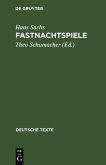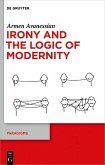Although Wolfgang Iser is one of the most influential literary theorists of the twentieth century, there is no authoritative study about his oeuvre. The present work remedies that problem by analysing Iser's German and English writings in detail. Apart from being the first comprehensive account of his work, this study also modifies the established view of Iser's theory. In contrast to the idea that his only contribution to literary studies is the reception theory of the 1970s, this account demonstrates the importance of Iser's work on history and anthropology from the 1950s and 1990s. Instead of exclusively focusing on familiar terms such as 'indeterminacy', this analysis also discusses Iser's view of modernity, fiction and culture. As this discussion shows, his writings develop a consistent theory of the novel and the way in which it allows its readers to articulate new views of reality. To situate this theory, Iser's institutional and intellectual background is described as well, paying special attention to the Poetik und Hermeneutik-circle and thinkers like Blumenberg and Kermode. The continued relevance of his theory is demonstrated via comparisons with recent research on the novel and memory as well as examples from contemporary novelists like Juli Zeh and Hilary Mantel.
Dieser Download kann aus rechtlichen Gründen nur mit Rechnungsadresse in A, B, BG, CY, CZ, D, DK, EW, E, FIN, F, GR, HR, H, IRL, I, LT, L, LR, M, NL, PL, P, R, S, SLO, SK ausgeliefert werden.
Ingo Berensmeyer und Gero Guttzeit in: Anglia 4/2013
"[...] ausgesprochen gehalt- wie niveauvollen Bandes [...] "
Till Kinzel in: Germanisch-Romanischen Monatsschrift, S. 124-125, 1/2014









